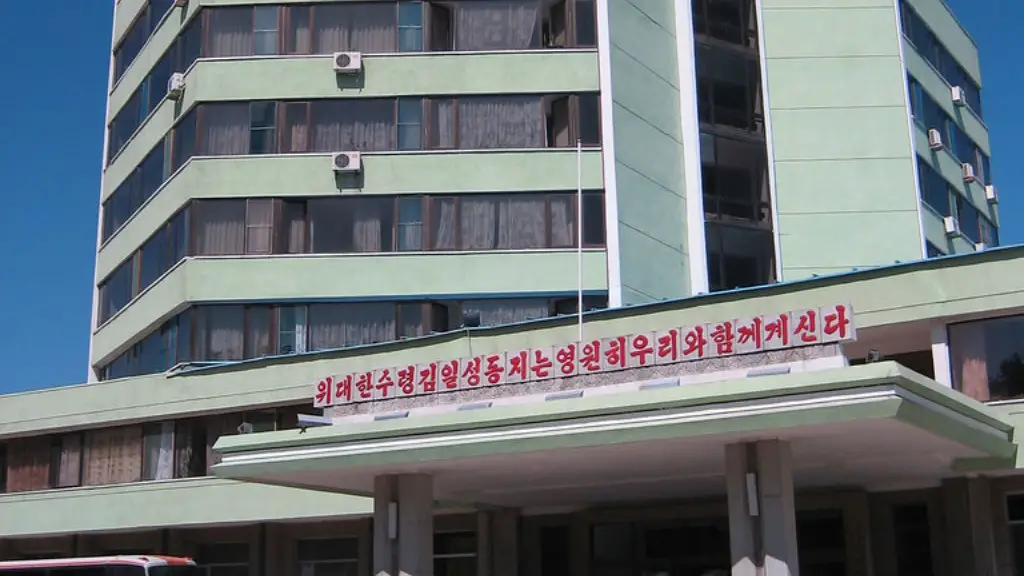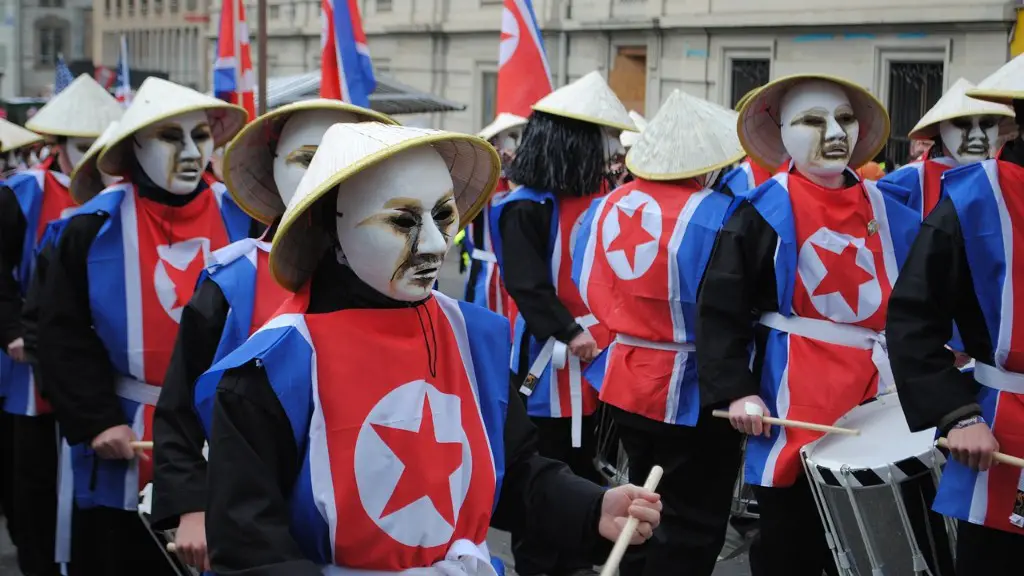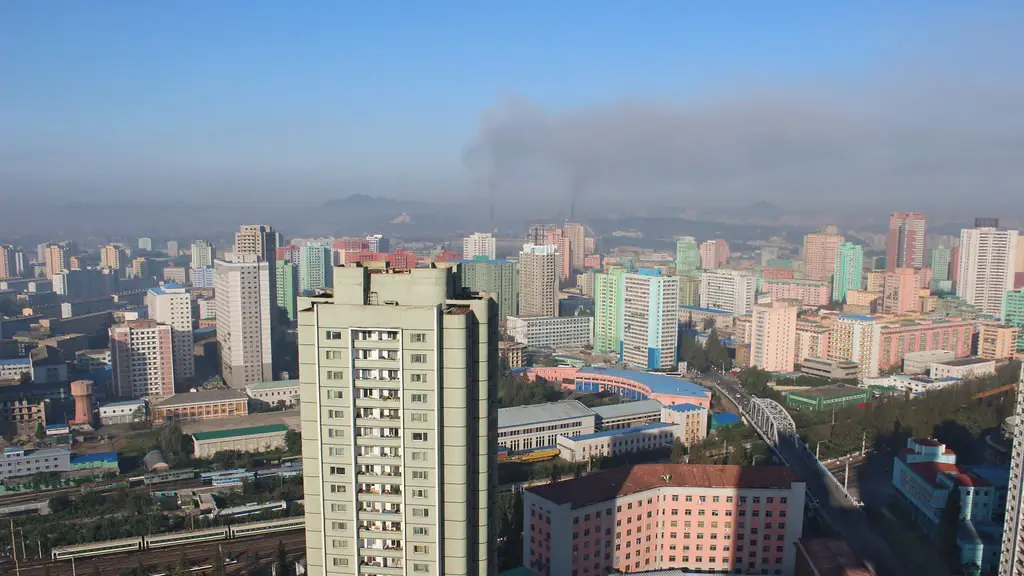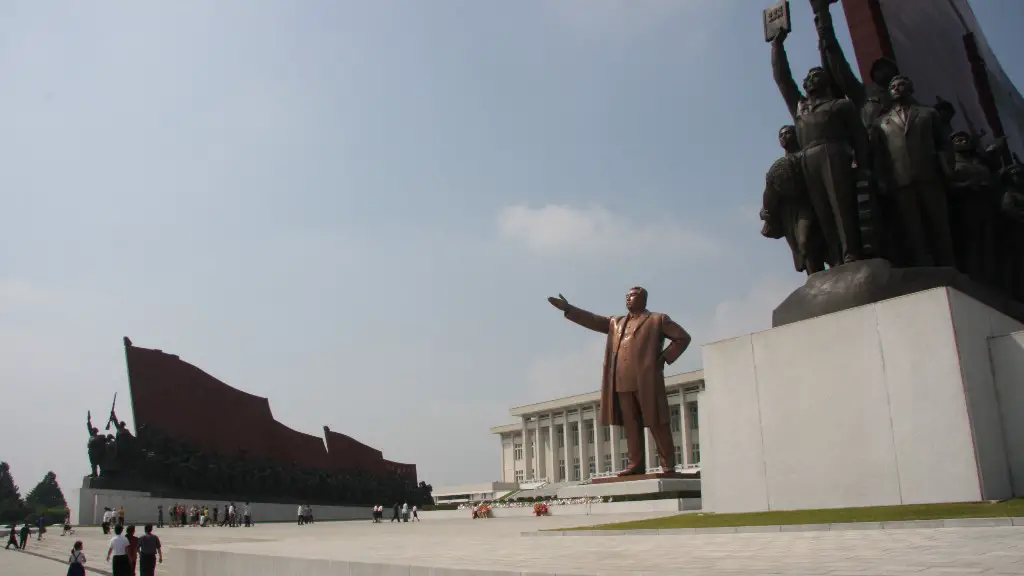Politically Motivated
North Korea is a politically motivated nation feared for its capability to cause serious global disruption and destruction. To understand why North Korea is feared we must acknowledge their strained international relationships, the weapons they possess and the strict rule of their regime. North Korea is known for its controversial state-sponsored media outlets. These include Korea Central News Agency (KCNA) and the Korean Central Television (KCTV). Additionally, North Korea also restricts its own citizens from accessing the world wide web or any international media. As a result, North Korea’s leaders have unparalleled control over its citizens and their beliefs.
North Korea’s political tension with other countries is its most fear-inspiring attribute. Academics believe that the current leader, Kim Jong Un, is unlikely to deviate from the policies of previous leaders and instead is more likely to continue such policies if he is successful in maintaining his rule. Kim Jong Un is accorded a god-like status by his people, a status which allows him to pursue peace or war at will. North Korea is known as the ‘Hermit Kingdom’ owing to its apparent need for self-imposed international isolation and its nuclear testing policy which explicitly insinuates their capabilities of destruction.
Military Capabilities
The most prominent aspect of North Korea’s fearful reputation lies in the nation’s military capabilities. North Korea has a strong track record when it comes to the militarisation of their society. North Korea spends the equivalent of 22 percent of their GDP on the military. This is significant, particularly in comparison to the 1.8 percent of South Korea’s GDP is spends on the same.
It is estimated that North Korea has thousands of intercontinental ballistic missiles (ICBMs) which could potentially reach the United States of America if launched. North Korea has also been known to produce biological and chemical weapons as they possess a wide variety of agents such as VX, sarin, and anthrax. In April 2017, the nation tested a ‘Precision Guided Ballistic Missile’ capable of carrying a nuclear warhead. In 2018, North Korea launched their first intercontinental ballistic missile in 11 years, reaffirming the nation’s intent to continue and grow its military capabilities.
Human Rights and Food Security
The rule of North Korea’s ruling class is characterised by human rights violations and stripped freedoms. North Korea has been deemed one of the worst places in the world for basic rights. Reports from Human Rights Watch and the Democracy Index reflect that North Korea rate poorly in legal, economic and social liberties. Citizens of North Korea enjoy very limited freedoms, and the fear this cause is reflected in the difficulty of individuals to protest and secure basic rights.
Food shortages are also vast in North Korea. The nation has been hit by recurring droughts and floods which have threatened the nation’s food security. United Nations (UN) reports reflect that millions of people in the nation are undernourished, and food insecurity is one of the country’s major issues. In addition, North Korea has the second highest stunting rate globally and this continues to drive the nation’s from a nutritional standpoint.
Sanctions and Foreign Aid
The rising threats caused by North Korea have led to a number of different layers of imposed sanctions as a form of foreign intervention. Sanctions imposed on North Korea by the United Nations Security Council (UNSC) have targeted their weapons development programs, as well as it’s citizens, through anti-money laundering laws, trade and travel restrictions. As of 2020 the international community have enforced 17 resolutions and other sanctions to limit the impact of North Korea’s nuclear arsenal. Despite international discouragement, North Korea continue to test and develop weapons, raising the fear of a potentially catastrophic outcome that could ensue due to a mistake.
Foreign aid provided to North Korea by international organisations and other nations provide an opposing approach to managing the level of fear created by its nation. NGOs such as the World Food Programme (WFP) and the International Crisis Group (ICG) have been aiding North Korea since the 1990s when the nation was hit by food shortages due to its own acts of self-sabotage. The aid provided without sufficient evidence of improvement has created criticism on whether such acts are effective in the long term.
Usurpations of Power
As one of the world’s most tightly structured and centrally controlled states, North Korea’s leadership of Kim Jong Un has been accused of proposing a system of hereditary succession. Since Kim Jong Un’s ascension to power, his rule has been characterised by an unconcealed greed for absolute power in the scale of a dynasty, leading to the suspected removal of several individuals exercising power or influence in the nation. Political purges have been a common occurrence in North Korea. More recently, in December 2019, Kim Jong Un’s closest aide, Hyon Yong Chol, was executed by anti-aircraft gun after it was reported that he fell asleep during a session of the nation’s Supreme People’s Assembly. Hyon Yong Chol’s execution highlighted the culture of fear cultivated by Kim Jong Un’s regime.
Recent Rhetoric
Under Kim Jong Un’s rule, North Korea’s nation has provoked international tension with an escalating rhetoric which targets the US and its allies. North Korea continues to construct nuclear missile launch sites and test new weapons, and these acts continue to fuel international suspicion of North Korea’s ambitions and capabilities. Since 2017 the North Korean government has been known to threaten the US with their nuclear and ballistic missile capabilities, calling for their intervention in the region and warning than any provocation would be met with an overwhelming response. This ongoing tension created by the nation’s rhetoric has caused fear on an international level, as the miscommunication could lead to severe global implications if unresolved.
Punitary Punishment
The fear of North Korea is further heightened by their controversial punishments and forms of torture. Punishments have been known to publically humiliate and inflict severe pain on violators. Public executions have been known to take place at large sports stadiums and work camps are known to torture, maim and kill prisoners en-masse. These punishments often report to be disproportionately cruel and serve in distinct contrast to other nations with similar offenders.
Political Stagnation
North Korea’s people remain locked in political stagnation due to the kingdom’s commitment to self-isolation and their undying loyalty to their leader. This policy has not changed in over sixty years and suggests that the nation’s rulers are unlikely to seek a path of diplomacy guiding their people to a more peaceful future. North Korea’s state-sponsored media continues to propagate the leader’s statements in attempt to maintain their power and the loyalty of their citizens. This leaves citizens with limited opportunities to access information and form opinions that rely on personal interpretations of what they are told. As such, it is largely believed that the nation’s political ideology and foreign policy will remain unchanged thus sparking fear amid the international community.
Limitations on Civil Liberties
The limitations on civil liberties furthers North Korea’s impenetrable form of rule. The gaps between the citizens and the regime can only be filled with false expectations and unfounded fears. North Korea maintains a strict policy on freedom of speech and freedom of assembly which pervades the nation’s citizens as they are left questioning why they are denied their basic human rights.
The nation’s government ruthlessly cracks down on any form of dissident. Given the severity of punishment, an environment of fear has been crafted, leading citizens to be severely limited in their ability to participate in political life independently. The nation’s borders are highly monitored in fear of citizens escaping the country. It is illegal to cross the border between North Korea and neighbouring South Korea and any natives found attempting to cross are treated as traitors and are penalised with severe punishment.
Nuclear Disarmament
The notion of any form of a grassroots uprising against their authoritarian regime is unlikely due to North Korea’s hardline approach to nuclear disarmament. North Korea operates the world’s largest known stockpile of nuclear weapons, contributing to the international suspicion of their intentions.
Hence, the global community remains concerned as the nation continues to grow its weapons capabilities. North Korea continues to reject global calls for disarmament, fuelling international unrest and creating an environment of fear. The distrust created by North Korea’s uncertain intentions and its ambitions of global dominance further sparks fear on an global level.
International Isolation
North Korea and their political isolation have caused severe concern amongst the international community and it’s leaders. The nation has been documented to travel in secrecy, conduct black-market activities, and use diplomatic relations in attempts to gain access to weapons.
The United Nations have long condemned North Korea’s human rights abuses and nuclear testing. Despite years of international condemnation and economic sanctions aimed at stopping the nation’s weapons capability, North Korea continues to show no signs of compliance. Efforts have been made, however, by the UN to encourage a diplomatic path towards the disarmament of North Korea’s nuclear programs, yet progress remains slow and uncertain.
Sanctions and Human Rights
International actions such as sanctions targeting North Korea’s weapons programs, continued to affect their citizens’ access to food and other resources, leading to a further deterioration in human rights and living conditions. There have been reports of suppression of poverty and food insecurity as international interventions remain ineffective. International sanctions that restrict and limit trade to North Korea have also failed to provide a tangible impact to the nation and its citizens.
Public executions and cruel punishments, enforced by the nation’s court, continues to spur fear and public humiliation. These occurrences are heavily reported by the state media, enforcing the capacity of the the government to act with impunity and project the narrative of a strong and fearsome kingdom.
Public Criticism
International opposition to North Korea continues to unravel, as the nation’s uncompromising approach to international affairs drives further fear and dismay in the global community. As a response, a range of different countries have begun to publicly criticise the nation’s approach to human rights and international relations. Unfounded accusations of severe punishments for those accused of exercising their civil liberties have caused outrage amongst major international governing bodies.
Several organisations dedicate their efforts to ensuring the survival and safety of North Korean refugees, allowing those fleeing from their oppressive territories a space to seek shelter. Reports from several media outlets such as the ‘Washington Post’ and ‘New York Times’ continues to expose the nation’s wrongdoings, attesting to the ongoing fear in the international community.



